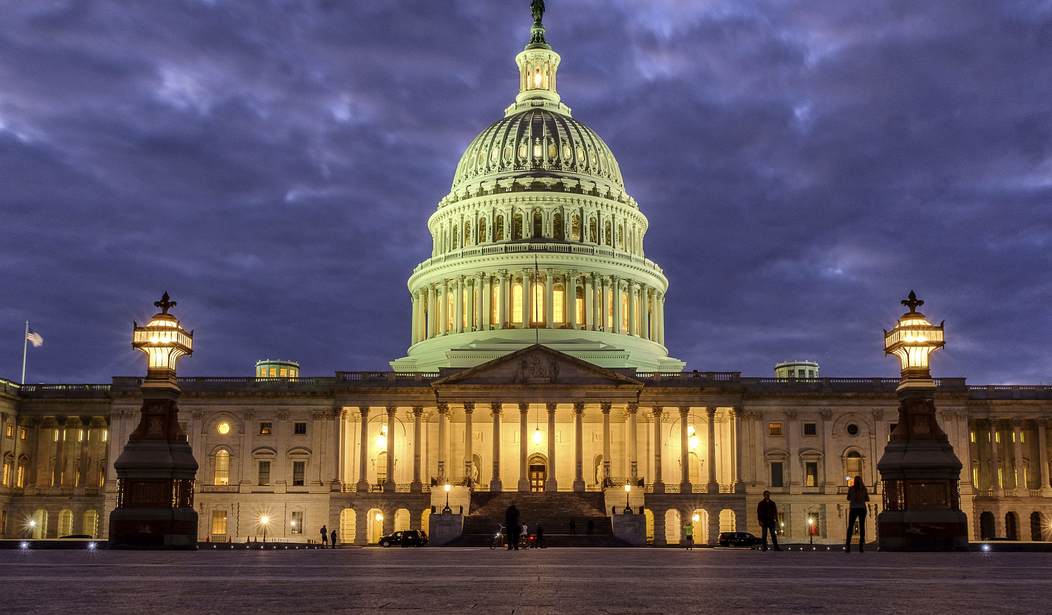WASHINGTON - Well, this was the week when Senate Democrats finished grilling Brett Kavanaugh in an effort to block his confirmation for the Supreme Court.
In the end, after several rounds of attempted left hooks and below the belt attacks throughout the nasty hearings, the Democrats didn’t lay a glove on him.
Judge Kavanaugh ducked, dodged and parried his way through the Democratic gauntlet, with his record intact and his reputation secure.
Even seasoned analysts gave Judiciary Committee Democrats a failing grade.
“It’s hard for me to feel much sympathy watching this kabuki dance; Senate Democrats know full well that Kavanaugh is going to be confirmed, and it’s mostly their own fault,” said political strategist Charlie Cook, Jr. in his widely-read, weekly analysis.
“One almost forgets that Democrats… voted in 2013 to change Senate rules to lower from 60 to 51 the threshold number of votes required for confirming executive and judicial nominees below the Supreme Court,” Cook writes.
Had Democrats… not lowered that threshold then, it would have been more difficult and, I think, unlikely that current Senate Majority Leader Mitch McConnell’s Republican majority would drop it last year for the high court as well,” he said.
Meantime, for the past six months or more, Cook has also been predicting that the GOP is facing “a Democratic tidal wave” in the upcoming midterm elections.
“There is no mistaking this wave. For better or worse, midterm elections are referenda on the president,” he writes this week in the Cook Political Report.
Recommended
“With roughly one third fewer people voting in midterms than in presidential years, who votes and who stays home is critically important,” he says.
But “Trump’s approval ratings have typically been the lowest of any post-World War II elected president in their first two years,” he adds. And only “occasionally have his numbers ticked above those of Jimmy Carter’s in 1977 and 1978.”
And they have “trailed those of Presidents Clinton and Obama, both of whom suffered catastrophic losses in their first midterm election….”
“We are most likely looking at a Democratic gain in the House of between 20 and 40 seats” in November, he says.
The Senate looks more favorable for Republicans, but not by much. The GOP “has just nine seats up,” though “only one in a state (Nevada) won in 2016 by Hillary Clinton.”
Democrats in turn have a walloping 26 seats up, “10 in states where Trump prevailed.”
Still, “there are nine potential net-change outcomes, and in six of nine, Republicans maintain their majority. The kicker is that with so many small states in play, there could be a relatively small number of votes making the difference in a handful of races,” Cook points out.
Nevertheless, Republicans have become increasingly worried lately about their chances of holding the Senate.
Senate GOP leader McConnell telegraphed worrisome doubts Tuesday when he told reporters, “I hope when the smoke clears, we’ll still have a majority.”
Driving such doubts were Trump’s weak approval polls, especially the Washington Post-ABC News survey at the end of August which posed this question to registered voters in the House races:
“If the election for the U.S. House of Representatives were held today, would you vote for the Democratic candidate or the Republican candidate in your congressional district?”
Fifty-two percent of registered voters overall said they would vote Democratic, while only 38 percent said they would vote Republican. Ten percent said they would vote for some other candidate, neither of the candidates, or would not vote at all.
Fifty percent of voters who described themselves as independents said they would vote for the Democratic candidate, while only 32 said they would vote GOP.
In another poll to measure voter turnout, 75 percent of registered voters overall said they were “absolutely certain to vote.” But 80 percent of Democrats and those who lean Democrat said that, too, compared to 74 percent of GOP voters or leaners.
Moreover, fewer Republicans than Democrats attach as much importance to voting in November than they did in previous midterms.
Seventy-five percent of registered voters overall said it was “more important” to vote this November than in past midterms.
Seventy-five percent of Democrats and Democratic leaners said it was “more important” than in the past to vote in this year’s midterms, compared to only 57 percent of Republicans and GOP leaners.
Tighten your seat belts, we’re in for a bumpy ride.

























Join the conversation as a VIP Member